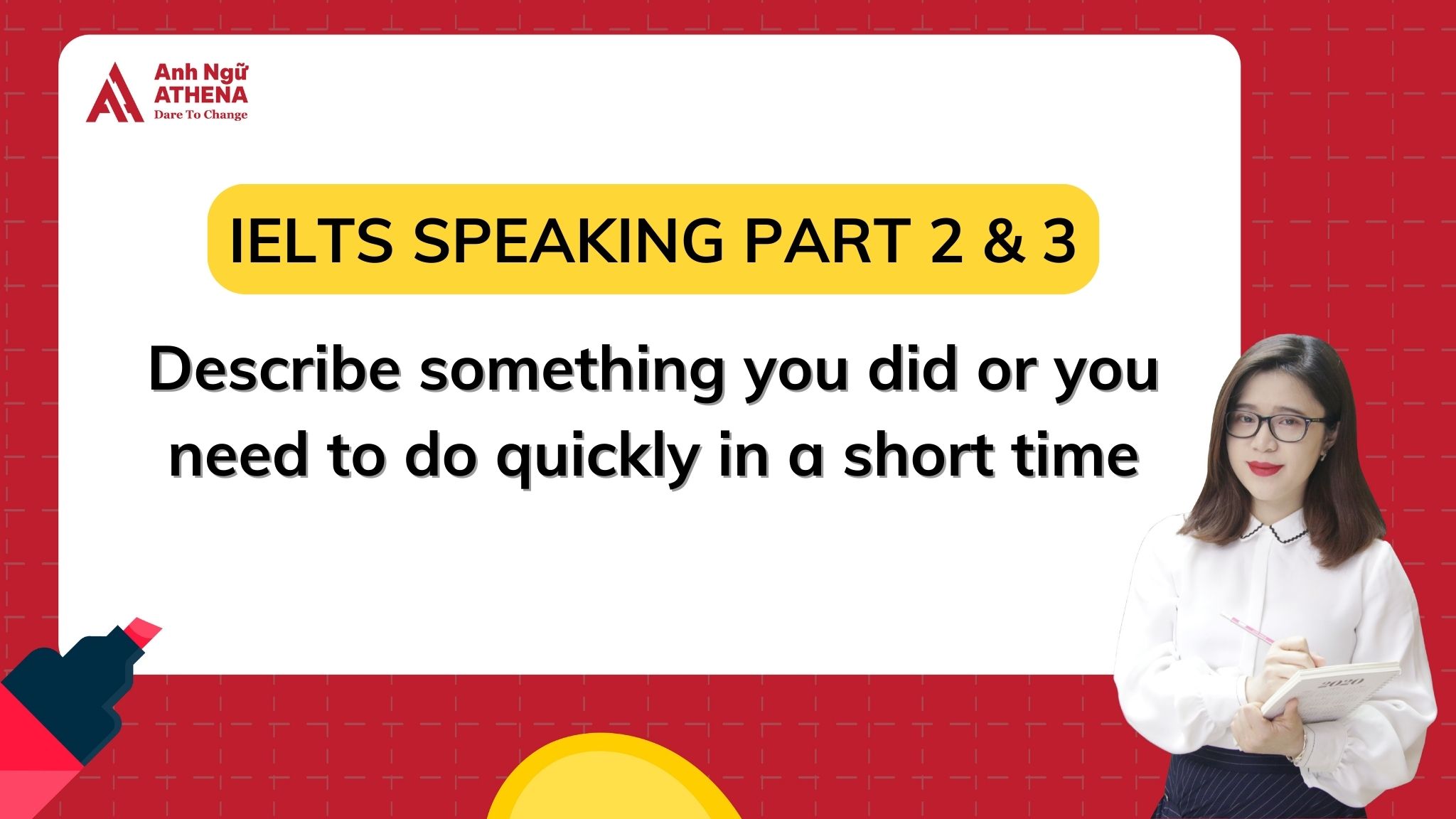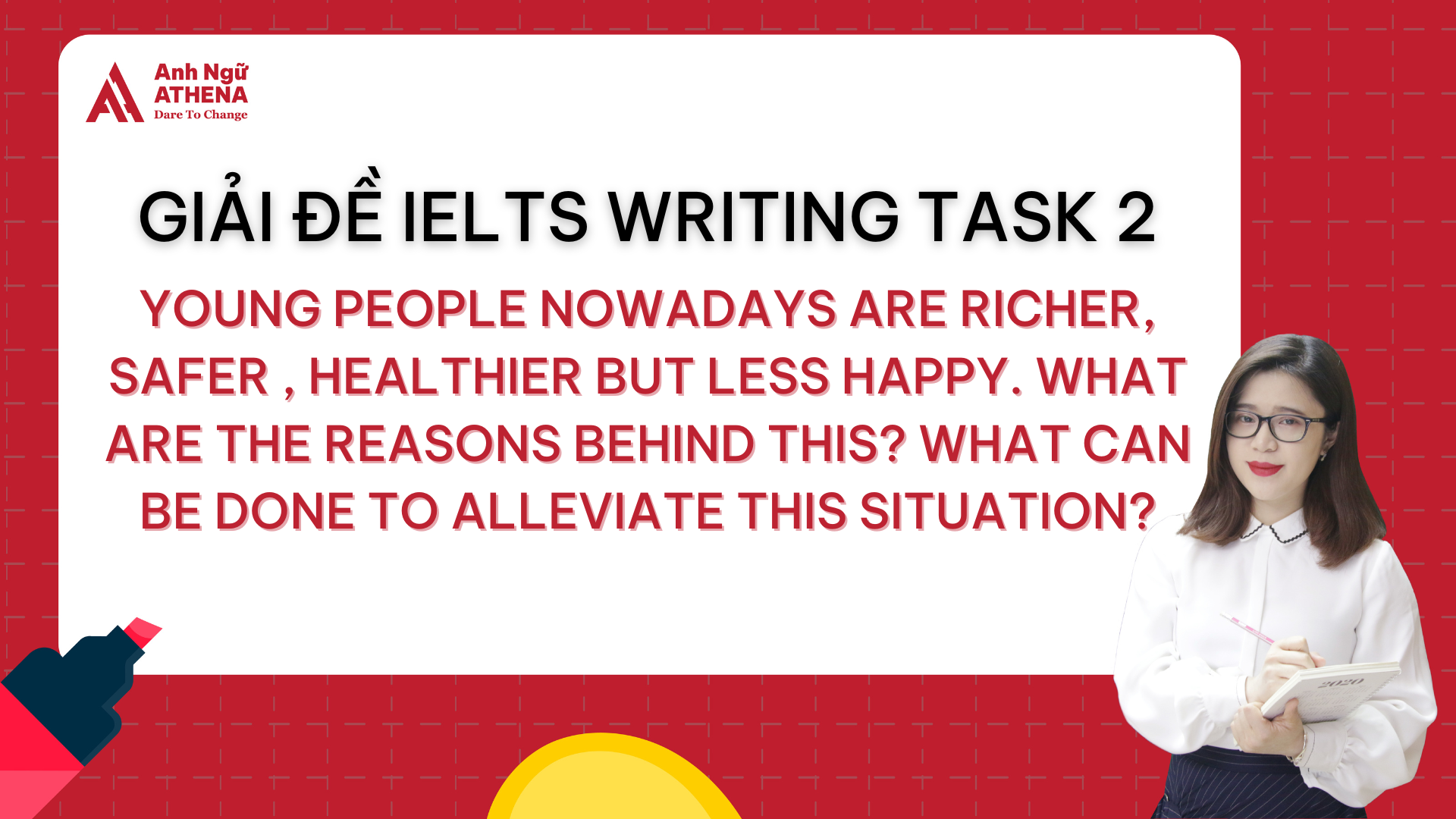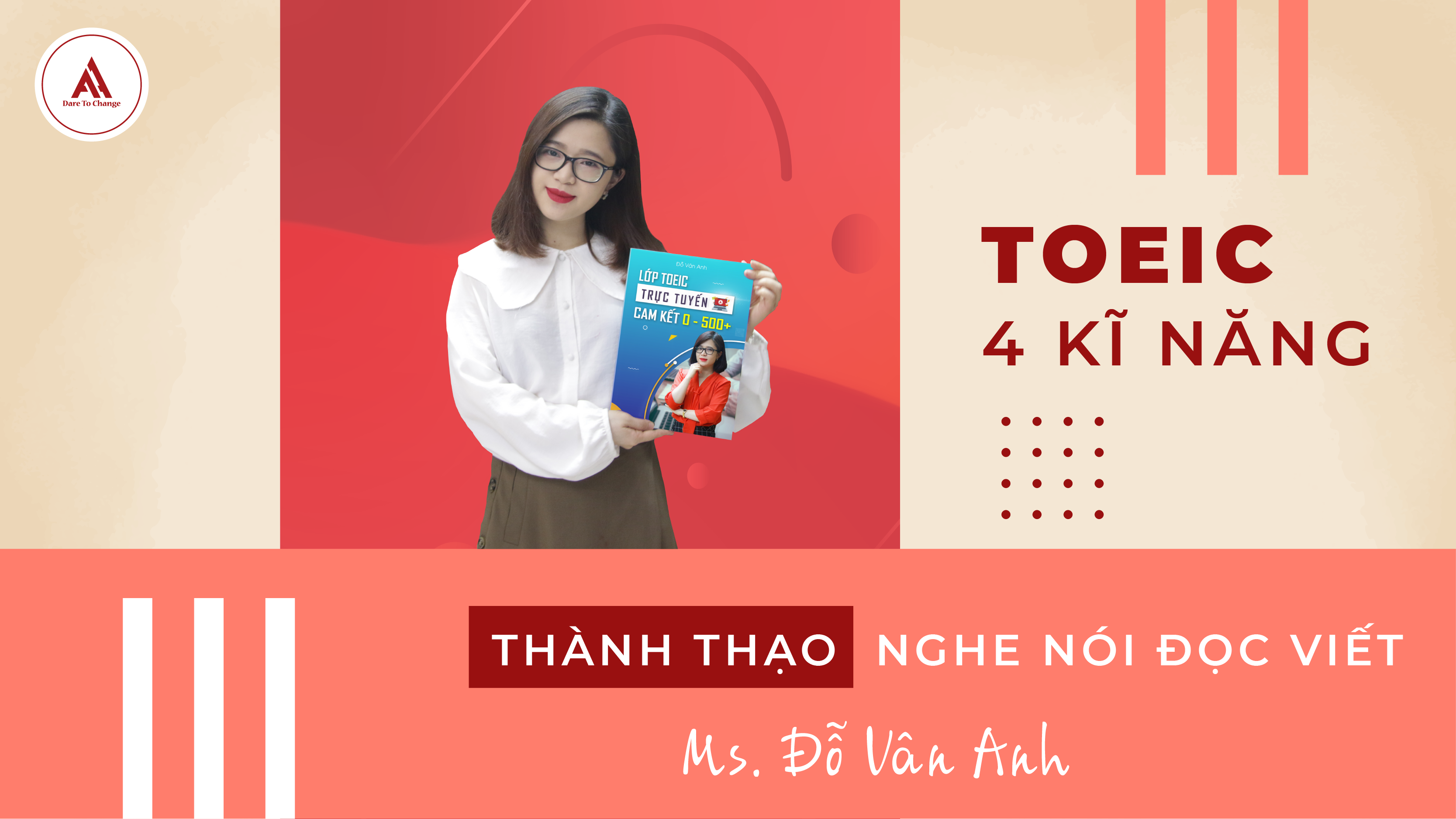Đề thi thử: Môn tiếng Anh kỳ thi THPTQG năm 2020 - Trường THPT chuyên Bắc Ninh
|
Cô Đỗ Vân Anh |
KỲ THI TỐT NGHIỆP TRUNG HỌC PHỔ THÔNG QUỐC GIA NĂM 2020 Bài thi: NGOẠI NGỮ; Môn thi: TIẾNG ANH TRƯỜNG THPT CHUYÊN BẮC NINH |
Mark the letter A, B, C, or D to indicate the word whose underlined part differs from the other three in pronunciation in each of the following questions.
Question 1: A. passed B. wished C. touched D. moved
Question 2: A. blood B. pool C. food D. tool
Mark the letter A, B, C, or D to indicate the word(s) OPPOSITE in meaning to the underlined word(s) in each of the following questions.
Question 3: He was so insubordinate that he lost his job within a week.
A. understanding B. obedient C. fresh D. disobedient
Question 4: I had no idea that you and he were on such intimate terms. I thought you were only casual acquaintances.
A. were hostile to each other B. behaved well toward each other
C. hardly knew each other D. were such close friends
Mark the letter A, B, C, or D to indicate the word that differs from the other three in the position of primary stress in each of the following questions.
Question 5: A. reflect B. contain C. purchase D. suggest
Question 6: A. possession B. politics C. decision D. refusal
Read the following passage and mark the letter A, B, C, or D to indicate the correct answer to each of the questions.
The sculptural legacy that the new United States inherited from its colonial predecessors was far from a rich one, and in fact, in 1776 sculpture as an art form was still in the hand of artisans and craftspeople. Stone carvers engraved their motifs of skulls and crossbones and other religious icons of death into the gray slabs that we still see standing today in old burial grounds. Some skilled craftspeople made intricately carved wooden ornamentations for furniture or architectural decorations, while others carved wooden shop signs and ships' figureheads. Although they often achieved expression and formal excellence in their generally primitive style, they remained artisans skilled in the craft of carving and constituted a group distinct from what we normally think of as "sculptors" in today's use of the word.
On the rare occasion when a fine piece of sculpture was desired, Americans turned to foreign sculptors, as in the 1770's when the cities of New York and Charleston, South Carolina, commissioned the Englishman Joseph Wilton to make marble statues of William Pitt. Wilton also made a lead equestrian image of King George III that was created in New York in 1770 and torn down by zealous patriots six years later. A few marble memorials with carved busts, urns, or other decorations were produced in England and brought to the colonies to be set in the walls of churches - as in King's Chapel in Boston. But sculpture as a high art, practiced by artists who knew both the artistic theory of their Renaissance Baroque-Rococo predecessors and the various technical procedures of modeling, casting, and carving rich three-dimensional forms, was not known among Americans in 1776. Indeed, for many years thereafter, the United States had two groups from which to choose - either the local craftspeople or the imported talent of European sculptors.
The eighteenth century was not one in which powered sculptural conceptions were developed. Add to this the timidity with which unschooled artisans originally trained as stonemasons, carpenters, or cabinetmakers - attacked the medium from which they sculpture made in the United States in the late eighteenth century.
Question 7: What is the main idea of the passage?
A. There was a great demand for the work of eighteenth-century artisans.
B. American sculptors were hampered by a lack of tools and materials.
C. Skilled sculptors did not exist in the US in the 1770’s.
D. Many foreign sculptors worked in the US after 1776.
Question 8: It is stated in the first paragraph that the sculptural legacy that the new United States had from colonial times was ______.
A. not great B. plentiful C. very rich D. not countable
Question 9: The phrase “turned to” in paragraph 2 is closest in meaning to ______.
A. castigated B. censored C. consulted D. hired
Question 10: The work of which of the following could be seen in burial ground?
A. stone carves B. carpenters C. cabinetmakers D. European sculptors
Question 11: The word “they” in the passage refers to ______.
A. wooden ornamentations B. skilled craftspeople
C.architectural decorations D. wooden shop signs
Question 12: The word "commissioned" in paragraph 2 refers to _________.
A. enabled B. allowed C. conferred D . empowered
Question 13: What can be inferred about the importation of marble memorials from England?
A. Such sculpture was expensive to produce locally than to import.
B. Such sculpture was as prestigious as those made locally.
C. Such sculpture was not available in the US.
D. The materials found abroad were superior.
Question 14: How did the work of American carvers in 1776 differ from that of contemporary sculptors?
A. It was less time-consuming. B. It was more expensive.
C. It was less refined. D. It was more dangerous.
Mark the letter A, B, C, or D to indicate the word(s) CLOSEST in meaning to the underlined word(s) in each of the following questions.
Question 15: Such problems as haste and inexperience are a universal feature of youth.
A. separated B. shared C. marked D. hidden
Question 16: Many inhabitants in the village have been inflicted with cancer due to the polluted source of water.
A. have fought against B. have prevented C. have suffered from D. have avoided
Mark the letter A, B, C, or D to indicate the sentence that is closest in meaning to each of the following questions.
Question 17: Fansipan is the highest mountain in the Indochinese Peninsula.
A. There are some mountains in the Indochinese Peninsula higher than Fansipan.
B. The Indochinese Peninsula includes one of the highest mountains on earth.
C. The highest mountain in the Indochinese Peninsula is exclusive Fansipan.
D. No mountains in the Indochinese Peninsula are higher than Fansipan.
Question 18: “If I were you, I wouldn’t read the job advertisement and position description carelessly.”, Helen said.
A. Helen advised me on reading the job advertisement and position description carelessly.
B. Helen recommended that I take no notice of the job advertisement and position description.
C. I was blamed for not reading the job advertisement and position description carefully by Helen.
D. Helen advised me against reading the job advertisement and position description
Question 19: It’s possible that Joanna didn’t receive my message.
A. Joanna can’t have received my message. B. Joanna might not have received my message.
C. Joanna may have received my message. D. Joanna might have received my message.
Read the following passage and mark the letter A, B, C, or D to indicate the correct answer to each of the questions.
Tsunami is a Japanese word that means harbor wave and is used as the scientific term for seismic sea wave generated by an undersea earthquake or possibly an undersea landslide or volcanic eruption. When the ocean floor is tilted or offset during an earthquake, a set of waves is created similar to the concentric waves generated by an object dropped into the water. Most tsunamis originate along the Ring of Fire, a zone of volcanoes and seismic activity, 32,500 km long that encircles the Pacific Ocean. Since 1819, about 40 tsunamis have struck the Hawaiian Islands.
Tsunami can have wavelengths, or widths, of 100 to 200 km, and may travel hundreds of kilometers across the deep ocean, reaching speeds of about 725 to 800 kilometres an hour. Upon entering shallow coastal waters, the wave, which have been only about half a metre high out at sea, suddenly grows rapidly. When the wave reaches the shore, it may be 15 m high or more. Tsunamis have tremendous energy because of the great volume of water affected. They are capable of obliterating coastal settlements.
Tsunamis should not be confused with storm surges, which are domes of water that rise underearth hurricanes or cyclones and cause extensive coastal flooding when the storms reach land. Storm surges are particularly devastating if they occur at high tide. A cyclone and accompanying storm surges killed an estimated 500,000 people in Bangladesh in 1970. The tsunami which struck south and southeast Asia in late 2004 killed over 200 thousand people.
Question 20: What does the word “concentric” in paragraph 1 mean?
A. Having a common centre B. Having wavy centres
C. Having wavy movements D. Having many centres
Question 21: What is the greatest speed of tsunami travelling across the deep ocean?
A. 150,000 kilometres an hour B. 200 kilometres an hour
C. 700 kilometres an hour D. 800 kilometres an hour
Question 22: The word “they” in paragraph 2 refers to ________.
A. Volumes of water B. Coastal waters C. Coastal settlements D. Tsunamis
Question 23: Which of the following is NOT true?
A. Storm surges are domes of water rising underearth hurricanes or cyclones.
B. Storm surges cause extensive coastal flooding.
C. Tsunami only occurs in Asia.
D. A cyclone along with storm surges happened in Asia in 1970.
Question 24: What is the passage mainly about?
A. Where tsunamis originate. B. How tremendous is the energy of a tsunami.
C. Damage caused by tsunamis. D. Facts about tsunamis.
Mark the letter A, B, C, or D to indicate the option that best completes each of the following exchanges.
Question 25: Jane offered Jim some more chicken; however, Jim was full and seemed not to have another serving. Choose the best response.
Jane: “Would you like some more chicken?”
Jim: “___________. I’m full.”
A. Never mind. B. No, I wouldn’t. C. No, I can’t. D. No, thanks.
Question 26: An old gentleman, who is not sure where to go for the summer holiday, is asking a travel agent for advice. Select the most suitable response to fill in the blank.
Gentleman: “Can you recommend any places for this summer holiday?”
Agent: “________.”
A. Yes, please go to other agencies
B. I don’t think you could afford a tour to Singapore, sir
C. No. You cannot recommend any places
D. A package tour to the Spratly Islands would be perfect, sir
Mark the letter A, B, C, or D to indicate the underlined part that needs correction in each of the following questions.
Question 27: Facebook.com’s server IP address could not find in Google Chrome browser because of the error of Internet connection.
A. Facebook.com’s B. could not find C. because of D. Internet connection
Question 28: My girlfriend and I drink sometimes coffee in the morning in a café near my school.
A.girlfriend B. drink sometimes C. in D. near my school
Question 29: There were inconsiderate amounts of money wasted on large building projects.
A. inconsiderate B. amounts C. wasted D. building
Read the following passage and mark the letter A, B, C, or D to indicate the correct word or phrase that best fits each of the numbered blanks.
Having a relationship with someone is important to people around the world; (30) _______, dating is different from culture to culture. Here are some examples.
Group dating is popular among young people in Europe and Australia. Groups as large as 30 people take part in events, such as going camping or having a party. This is seen as a (31) _______ way to spend time together, and to help to (32) _______ tension because people feel more comfortable in the company of friends before deciding whether to go on a one-to-one date.
In Singapore, since many young people stay single, the government has tried its best to encourage dating. Dating services are offered to single people. One of them is speed dating, in (33) _______ singles will spend a few minutes talking to one person before moving on to meet the next one.
Online dating is a common way of (34) _______ in the United States. Internet companies are now offering a service called ‘online dating assistant’ to help busy people to find a partner. An assistant helps customers to build their profiles, selects potential matches, and then sends several emails to the possible matches until the two people agree to meet face to face.
Question 30: A. although B. and C. however D. despite
Question 31: A. safe B. savings C. safely D. save
Question 32: A. deteriorate B. ease C. refrain D. escape
Question 33: A. when B. that C. which D. whom
Question 34: A. matchtaking B. matchgoing C. matchcatching D. matchmaking
Mark the letter A, B, C, or D to indicate the correct answer to each of the following questions.
Question 35: Of all the world’s major oceans, ________ Arctic Ocean is ________ shallowest.
A. the - the B. an - the C. Ø - the D. a - the
Question 36: If you do what you tell others, they ________ in you.
A. believe B. won’t believe C. will believe D. would believe
Question 37: We ________ in silence when he suddenly ________ me to help him.
A. walked - asked B. were walking - asked
C. walked - was asking D. were walking - was asking
Question 38: Make sure you mix the ingredients well, _______ you might get up lumps in your cake.
A. otherwise B. supposing C. unless D. provided
Question 39: To protect _______ hackers, security experts advise longer passwords _______ combinations of upper and lowercase letters, as well as numbers.
A. against - in B. from - to C. on - between D. against - with
Question 40: _______ as the representative at the conference, she felt extremely proud of herself.
A. On choosing B. Having been chosen C. Be chosen D. Having chosen
Question 41: Applications _______ in after 30 April will not be considered.
A. sent B. send C. that is sent D. which sent
Question 42: I won’t buy that car because it has too much _______ on it.
A. ups and downs B. white tie C. wear and tear D. odds and ends
Question 43: Don’t worry! Our new product will keep your bathroom clean and _______.
- odour B. odourless C. odourlessly D. odourful
Question 44: It’s important to project a(n) _______ image during the interview.
A. optimistic B. cheerful C. positive D. upbeat
Question 45: Part time jobs give us freedom to _______ our own interest.
A. pursue B. chase C. seek D. catch
Question 46: Van Gogh suffered from depression _______ by overwork and ill-health.
A. taken up B. pull through C. coming about D. brought on
Question 47: Jane would never forget _______ first prize in such a prestigious competition.
A. to have awarded B. being awarded C. having awarded D. to be awarded
Question 48: There has been a widespread _______ about whether North Korea has successfully miniaturized a nuclear weapon and whether it has a working H-bomb.
A. gossip B. rumour C. challenge D. doubt
Mark the letter A, B, C, or D to indicate the sentence that best combines each pair of sentences in the following questions.
Question 49: The basketball team knew they lost the match. They soon started to blame each other.
A. Not only did the basketball team lose the match but they blamed each other as well.
B. Hardly had the basketball team known they lost the match when they started to blame each other.
C. No sooner had the basketball team started to blame each other than they knew they lost the match.
D. As soon as they blamed each other, the basketball team knew they lost the match.
Question 50: I invited Rachel to my party, but she couldn’t come. She had arranged to do something else.
A. Without having arranged to do something else, Rachel would have come to my party as invited.
B. If it hadn’t been for her arrangement for something else, Rachel would come to my party as invited.
C. Rachel would have come to my party, unless she hadn’t arranged to so something else.
D. If Rachel hadn’t arranged to do something else, she would come to my party as invited.











